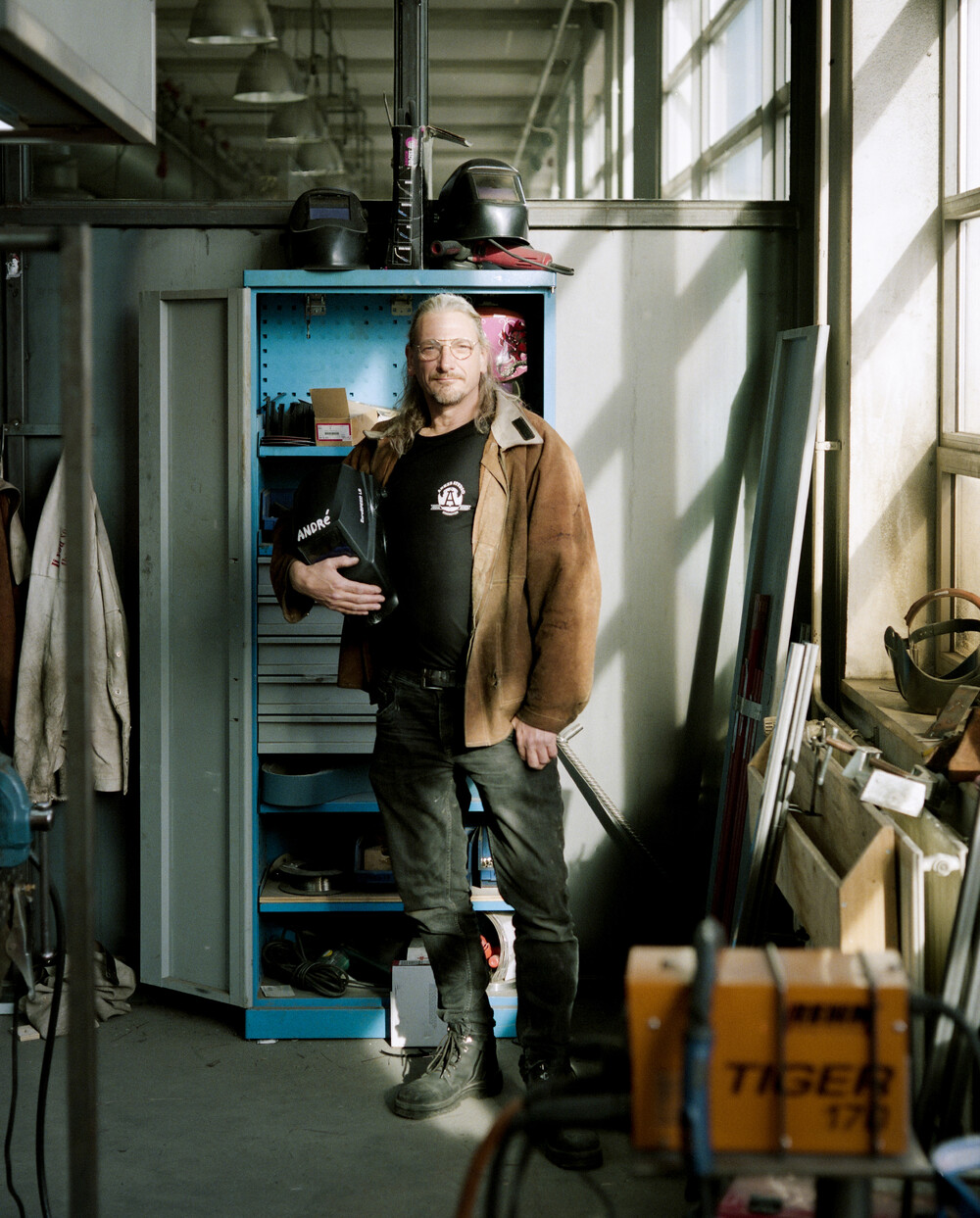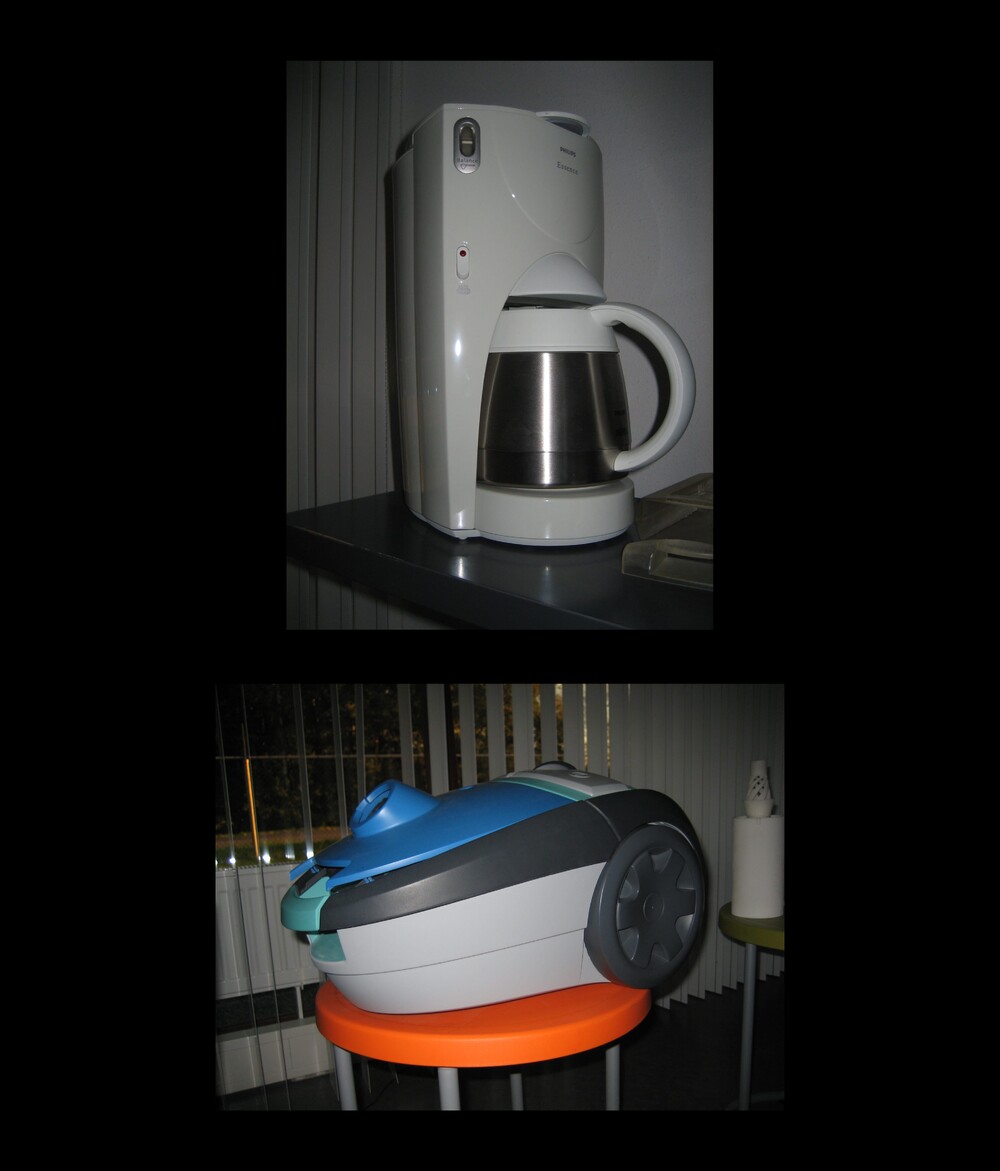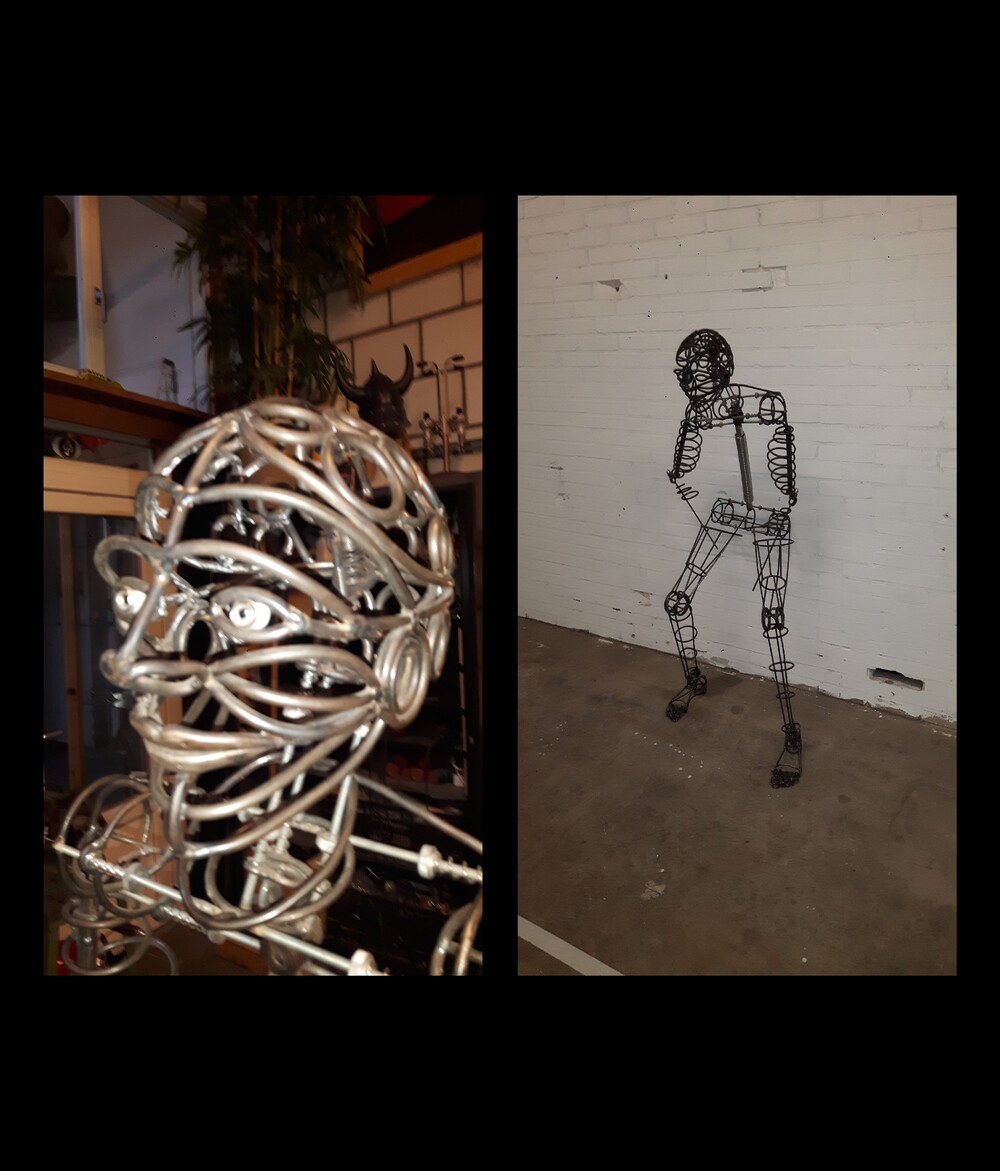Andre Wiersma



Andre Wiersma clarifies the myth that he wasn't actually born in the metal workshop and discusses the origin of the Workshop Award.
→ Can you tell me about the Metal Workshop, how it started, how did it develop?
Andre Wiersma: When the school moved over to the Witte Dame in 1997, there wasn’t supposed to be a big workshop at all because the Academy wanted to be more conceptual than hands on. But luckily they started with the left over machines from the old location and planted them on the 1st floor. Like a fungus it grew to become the workshops like we know them today.
We even had an aluminium casting corner for small pieces until it became too much work to keep an eye on safety and a health, people started to cast to big objects the workshop wasn’t equipped so we closed that. When you let go of the rules a little bit people stretch things out too far. We are hoping that when the Academy moves to a new location we will have a large space outside to be able to do more casting and blacksmithing.
→ You have your own studio outside of the academy, what are you working on at the moment and how do you balance your time?
AW: I work three days a week for the Academy to help out students with their projects. Of course when I first started working I thought well I can work on some of my own projects here in this massive fully equipped workshop. But the students quickly stopped that idea on Day 1, when I was bombarded with questions and had to explain that I was working for myself. So then I thought, ok, I have to build my own workshop and found a nice space at Sectie-C.
Currently, I’m working on a self-portrait from 6mm steel rods, it’s at 1:1 scale and I’m trying to figure out all the joints, all the movements that humans have and make that from those rod’s. It’s a sort of primitive robot which could have been made in the mediaeval period. In between I help out in loads of different projects like I do in the Academy.
“I thought oh, no, no, I really didn't want that, I didn't want to go back to metal work. But I thought I would take it, and then sneak into the plastics department, but that never happened, and that was back in 2005.”
→ There is this myth that you were born in the metal workshop, have you always been working with metal?
AW: I’ve always been busy with my hands. When I was six years old I would come out of my bed at 7:00 o’clock in the morning on a Sunday to check the garbage and see what I could find. The same when I’m walking, if I see a nut laying on the ground I need to pick it up and put it in my atelier, now my atelier is filled up with all the stuff that I find. But it wasn’t always metal.
I studied fine mechanics. Precision metal working was my thing. Building huge machines. But that got really bored with working in a factory. It wasn’t about the work but just the depressing environment of a factory and I thought I’m not going to do this for the rest of my life. So my wife and I quit our jobs, bought a Van and went travelling. When we got back in the Netherlands I started to look for a job as a model maker, work that I did for my internship at Bruns. I found that work at Phillips. There I was making high end prototypes and dummy’s for consumer electronics, out of plastic like: kitchen appliances, TV’s, telephones you name it. I did that for about 12 years. Wonderful job but I missed the interaction with the designers being just a cog in de design mechanism.
In 1991 I did the propaedeutic year at A.I.V.E. (the formal name of the Academy). I realised then that I’m more a craftsman than a designer and quit. A Classmate of me continued and ended up as a workshop instructor. I asked him if there was a spot available in the plastic department. Would be nice to teach my model making skills to students
He called me and said well there’s a spot at the metal workshop. I thought oh, no, no, I really didn’t want that, I didn’t want to go back to metal working. But I thought I would take it, and then hop over to the plastic department, many opportunities came by in the 17 years here and I never took it. I found my love back for working in metal!
"I believe that if you talk in the language of nature, the products or designs will look natural and as if they're coming to life."
→ Do you have a philosophy for your work?
AW: Oh yeah! Regarding to my own work I’m inspired by the shapes of nature. These shapes are beautiful. For example, the radius of the tips of your fingers, leaves, flowers, these shapes and geometries have a natural flow. I believe that if you talk in the language of nature in your designs it will look natural and as if they’re coming to life. Of course you could make it square and box-like, efficient and functional, but then we would all live in a Minecraft world. I love old cars, old American 50’s cars, I love the curves. I love designs that have this sort of flow. A designer like Raymond Lowey and many others use this sort of aesthetic.
→ What do you think is most important when you come to the metal workshop?
AW: I think it’s important to come to the workshop and start practicing skills that you need in the future. Failing is fine, it’s part of the learning experience (within the boundaries of safety). You should always try and learn the crafts of the workshop you are participating in first, in order to break the boundaries of the craft later. I love it when students come in and push the limits. But what’s not okay is pushing the limits of machines. A tutor once asked the students to find out the limits of the machine. So then they thought what happens if I try to fold a piece of 3mm thick on a machine that can handle 2,5 mm max and brake it. So there are limits on what is possible.
“The award is often won by students that make crossover to various workshops and become all-round craftsman with a pleasant attitude.”
→ At the end of every academic year, you hand out the infamous Workshop Award. Can you tell us about the award and where it came from?
AW: It originally started when I realised that we always worked with students closely till their graduation, but once the student graduated, we as workshop instructors felt that we were left out, especially when it came to graduation ceremony. So I kind of broke in the ceremony with the Workshop Award.
Sotiris de Wit was a student from Belgium who started from scratch and didn’t know much about crafts. But at the end of his bachelor’s studies he really knew his way around the workshop and became a good craftsman . Not only that, but he was polite, he cleaned, he paid for materials that he used and helped others. Because of him, I really thought that there should be some sort of award for this kind of students.
This award started back in 2014 in the metal workshop. Then other instructors wondered where the award for their workshop were, so then we started to nominate students from various workshops, and let it circulate among them. The award is often won by students that make crossover to various workshops and become all-round craftsman with a pleasant attitude.
→ Finally In the metal workshop what's the most important tool?
AW: For me it’s the calliper, that’s the holy grail. If you can measure you can make. From all machines is the lathe is my best friend, so accurate and therapeutic to work on.